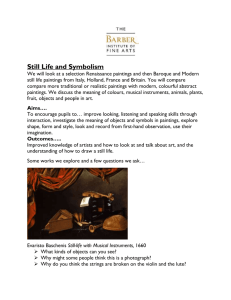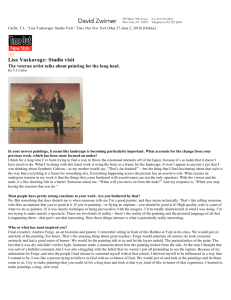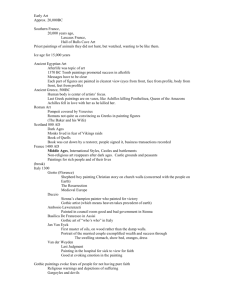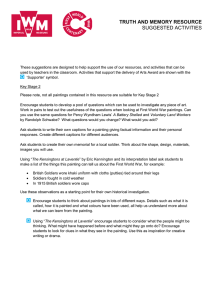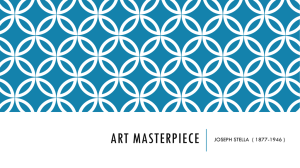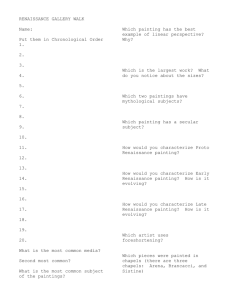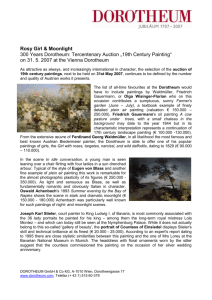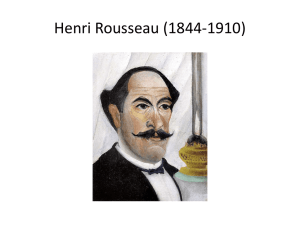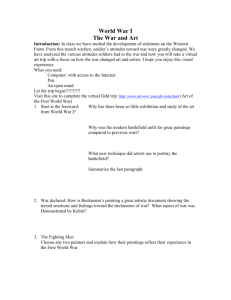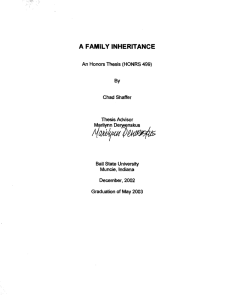Lesson: El Arte de Goya, Picasso, y Velásquez Date:
advertisement
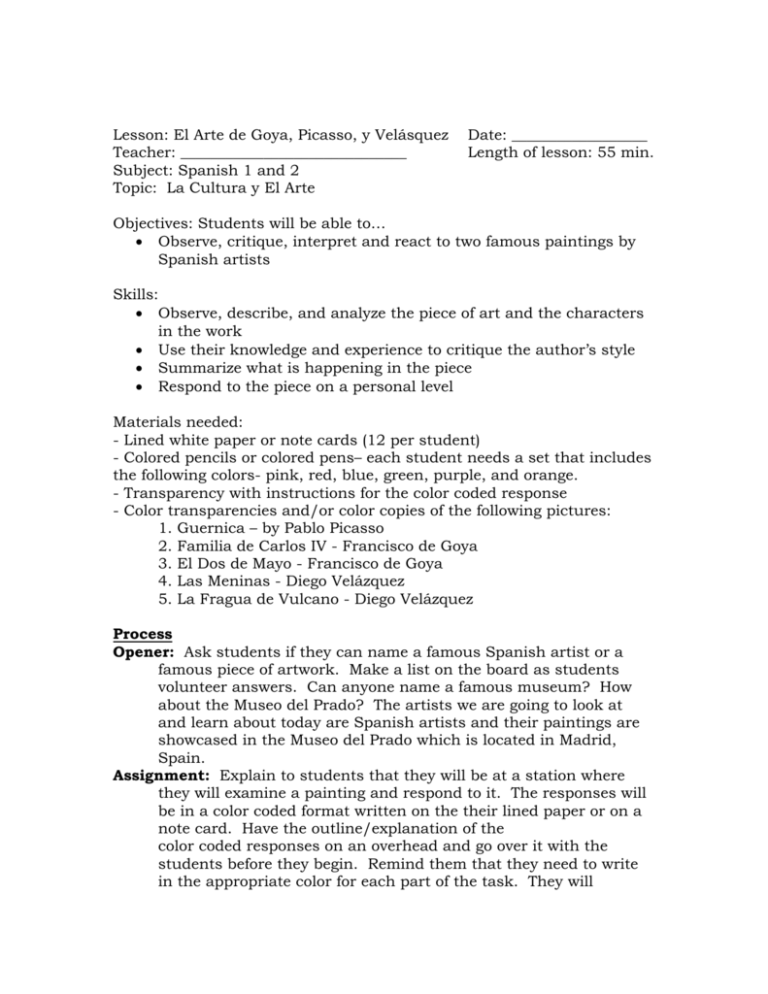
Lesson: El Arte de Goya, Picasso, y Velásquez Teacher: ______________________________ Subject: Spanish 1 and 2 Topic: La Cultura y El Arte Date: __________________ Length of lesson: 55 min. Objectives: Students will be able to… Observe, critique, interpret and react to two famous paintings by Spanish artists Skills: Observe, describe, and analyze the piece of art and the characters in the work Use their knowledge and experience to critique the author’s style Summarize what is happening in the piece Respond to the piece on a personal level Materials needed: - Lined white paper or note cards (12 per student) - Colored pencils or colored pens– each student needs a set that includes the following colors- pink, red, blue, green, purple, and orange. - Transparency with instructions for the color coded response - Color transparencies and/or color copies of the following pictures: 1. Guernica – by Pablo Picasso 2. Familia de Carlos IV - Francisco de Goya 3. El Dos de Mayo - Francisco de Goya 4. Las Meninas - Diego Velázquez 5. La Fragua de Vulcano - Diego Velázquez Process Opener: Ask students if they can name a famous Spanish artist or a famous piece of artwork. Make a list on the board as students volunteer answers. Can anyone name a famous museum? How about the Museo del Prado? The artists we are going to look at and learn about today are Spanish artists and their paintings are showcased in the Museo del Prado which is located in Madrid, Spain. Assignment: Explain to students that they will be at a station where they will examine a painting and respond to it. The responses will be in a color coded format written on the their lined paper or on a note card. Have the outline/explanation of the color coded responses on an overhead and go over it with the students before they begin. Remind them that they need to write in the appropriate color for each part of the task. They will respond to two paintings (you can do more if you have time) and will rotate stations after about 15-20 min. You can let students choose their stations based on the painting they would like to respond to or you can assign groups. Break students into groups of 5-7, depending on class size. Each student will have their set of colored pencils and lined paper. Have them cluster desks in groups around the paintings so that each person can see the painting they are studying. You should have 5 groups of desks, since you have 5 paintings. Make sure that students can still see the overhead which has their instructions for responding to the painting. After studying and responding to a painting, have them switch stations and do the same thing for a second painting. (If you have extra time, have them do a third painting.) After students have responded to two paintings, have them return desks to the normal set up and call on volunteers to share parts of their responses. If time allows you can give background information on the paintings or artists. * If you don’t want to do this in small groups, you can do it as a class and just project the painting with the overhead or use a Smart board. Evaluation: How did students respond when they shared their thoughts with the class? Were their responses meaningful or thoughtful? Did the assignment provoke them to think about art and culture and were they able to relate it to their own lives? Do they know who these famous paintings are by and where they are located?
